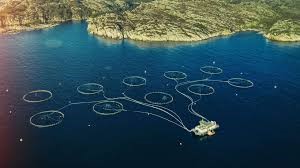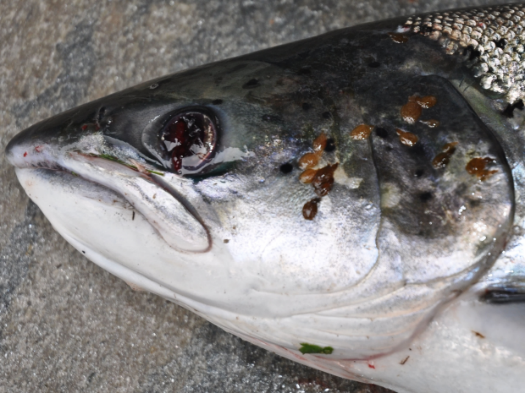Resolution from the European Anglers Alliance (EAA)
General Assembly 20.11.2021
Download the resolution
here.
EAA calls for closed containment salmon farming now! The General Assembly of the European Anglers Alliance (EAA) demands from the EU, the EU member states and other European wild salmon nations that; the legislative framework surrounding the salmon farming sector be strengthened and that further growth in the industry from 2022 onwards, whether it be new facilities or expansion of existing installations, should only be permitted if closed containment technologies are used and by 2030 closed containment systems must be mandatory for all existing fish farms.
We can already predict the end of many wild Atlantic salmon stocks in the Atlantic Sea unless governments across the EU and the European Economic Area (EEA) act immediately to save these remaining wild stocks from the negative and proven damage caused by open system aquaculture in inshore waters. The time is now for our politicians, national and international, to take positive action to rescue our remaining salmon populations, which are our common European heritage, in our rivers, fjords and seas.
Two key factors critically endanger wild Atlantic salmon stocks, both are related to the captive salmon aquaculture farming sector; salmon lice and escaped farmed salmon.
Unnaturally high concentrations of salmon lice on salmon farmed in open net-pen installations cause massively increased mortality in wild Atlantic salmon in large areas of the European and Nordic coastlines as they have to run past infected salmon farms on their way to spawn in their natal rivers.
Escaped farmed salmon interbreed with spawning wild Atlantic salmon and damage local genetic adaptations causing the wild native fish to be less resilient to the challenges presented by climate change, reducing their chances of survival.
Open sea aquaculture threatens wild Atlantic salmon and EAA knows what the solution is: our regulators must prevent further escapes of captive farmed fish and stop the spread of parasites - salmon lice in particular - from the farmed fish onto our wild fish stocks. Over the years many initiatives have been tried to save salmon, but none has succeeded in giving wild Atlantic salmon the chance to survive and spawn sufficiently to turn around the downward population trend.
Both threats to wild fish can be removed by simply introducing closed containment systems to all aquaculture sites. Closed systems ensure that damaging industrial farming processes are completely separated from the natural environment and its precious wild Atlantic salmon stocks.
Salmon farming is important business
There are only about 1.5 million wild Atlantic salmon left in the world, while there are approximately 500 million farmed salmon in open cages around our coasts at any given time. This important industry has to be protected, but not at the cost of wild fish and their environment. The wild fish are forced to run past the open farms to their natal spawning grounds and are confronted by the sea lice and escaped non-native fish from the open salmon farms.
The future security and prospects for wild Atlantic salmon stocks only point downwards as long these open farms exist. The number of spawning wild, native Atlantic salmon has been reduced by 50% in the last 35 years. An amazing and frightening reduction in wild Atlantic salmon stocks. This has happened in spite that the wild salmon fishery at sea has been drastically reduced and salmon angling is severely regulated in European rivers.
The ecological status of the wild salmon rivers has to be improved under the WFD and the Habitats Directive to give our wild Atlantic salmon specific increased protection and survivability.
Governments and environmental administrations have used all the tools available to them to try and protect wild Atlantic salmon. However, the downward spiral in wild native Atlantic salmon populations has continued, especially in areas of open farm marine aquaculture.
Industry on land was forced to clean up its act regarding pollution in the 1970s. That was a direct result of brave politicians deciding to use the most effective means at hand, namely laws and regulations.
Likewise, EAA wants additional protection measures to protect the wild Atlantic salmon stocks through the introduction of closed system fish farms around our coasts. The fish farming industry has refused to operate in an environmentally sustainable way and has resisted the simplest solution, which is to introduce entirely closed containment farming systems.
Wild Atlantic salmon need responsible politicians to protect the fish now and in the future by, without delay, making closed fish farming systems mandatory in European waters.

